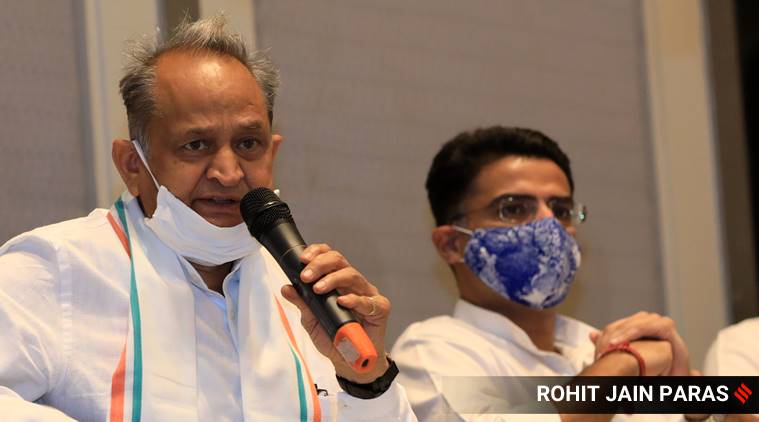 Rajasthan Chief Minister Ashok Gehlot with his former deputy Sachin Pilot. (File)
Rajasthan Chief Minister Ashok Gehlot with his former deputy Sachin Pilot. (File)
The Constitution is one document on which there is perhaps the largest measure of agreement across political parties, regions, and people. Not everyone knows the details and lawyers have fun and make money arguing over subtle points. But the national flag and national anthem apart, nothing else commands all-India respect.
Yet, which Constitution? Is it the Constitution handed over by the Constituent Assembly in November 1949 or the present much amended one? Do people know that India is the only country with free democratic elections where every candidate has to declare his/her adherence to socialism? Is this consistent with freedom of speech and expression? Intoxicated by his large majority in the 1984 election, Rajiv Gandhi passed the Tenth Schedule and blithely took away freedom of all legislators for ever. No government since has dared to challenge or change this monstrous denial of freedom. The founders of the Constitution had never intended to make India a Socialist Republic. It was Indira Gandhi during the Emergency who declared India to be a Socialist country. Obviously, no one seriously believes in the Declaration they need to make to be able to contest elections.
Many people still complain that the charge of treason is laid against political dissidents too lightly. It suits Opposition parties to blame the government. But the BJP has been in a ruling capacity, off and on, only since 1996. The treason charge has been on books ever since 1951. As I have remarked before, it was Jawaharlal Nehru who drafted and piloted the First Amendment in May 1951, 15 months into the life of the young Republic, and modified or negated every fundamental right created in the Constitution. These rights were not available to a colonised people. An independent Republic alone could grant these rights. But the rulers of new India could not risk the people enjoying such rights. So qualifications were legislated by the beloved Leader of New India which put citizens back in the same legal position vis-a-vis the State as they had under British rule. So the Indian Penal Code, Thomas Babington Macaulay’s gift to India, remains the guard dog of the fetters put on New India by Jawaharlal Nehru.
The current dispute in Rajasthan is a legacy partly of Schedule 10, which wanted to discourage defections. Obviously just because you are an elected legislator, you cannot be free to choose which party you should join or quit. So we have the charade of Speakers sending notices to legislators imprisoned in five-star hotels, far away from their base etc. As it is, these legislators do not enjoy freedom of speech unless they parrot the party line. Why bother to speak?
Political parties are too happy with the fetters of the amended Constitution to try to change it. There is no reason why citizens should not take up the task of debating Constitutional reform. A non- party political citizens’ movement could unearth the sorry history of the spoilage of the original 1949 Constitution and start a campaign for the removal of the bad elements introduced. It is the right and duty of citizens to reclaim their original freedoms as it is more than unlikely that governments of any political party which benefit from their power over citizens will renounce their privilege.
If citizens don’t, no one else will.